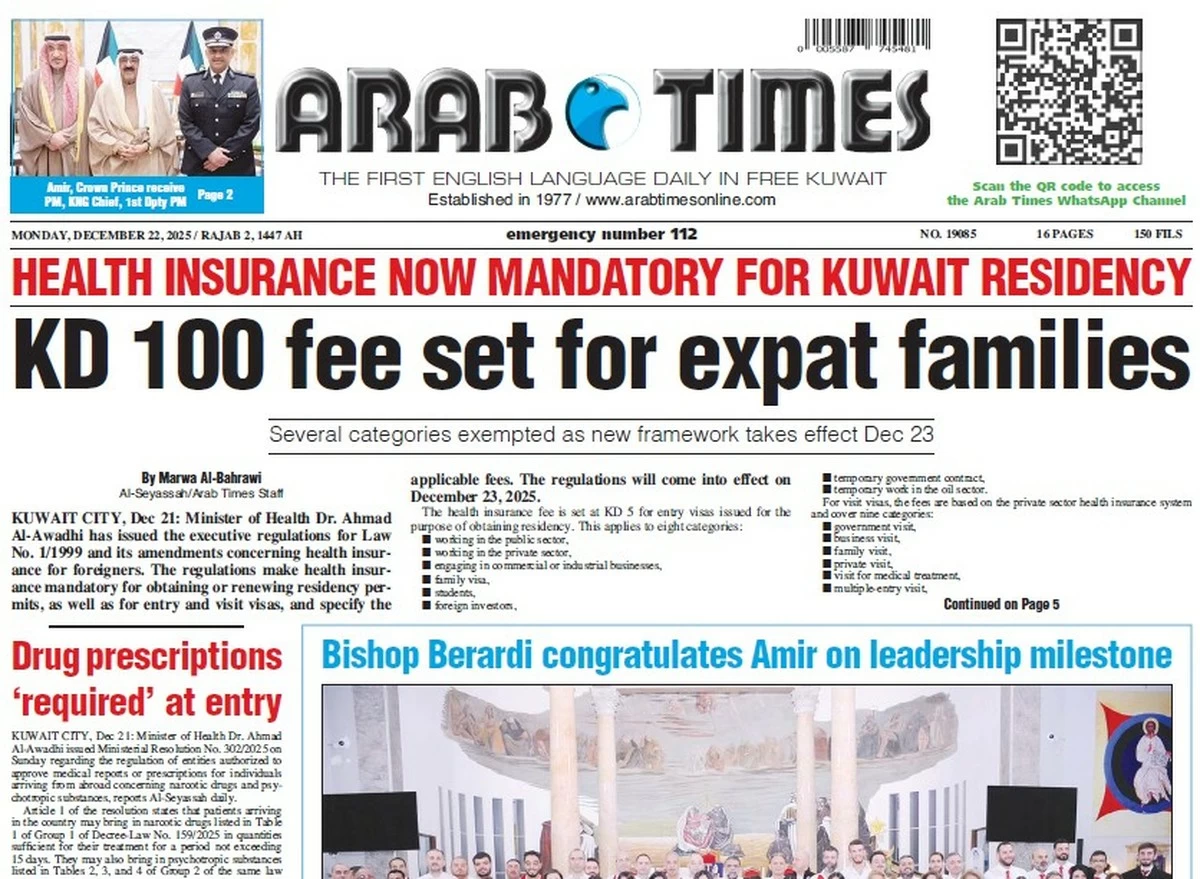KUWAIT CITY, Jan 11: The Gulf Cooperation Council (GCC) countries, including Kuwait, are undergoing significant financial transformations as they adopt new global tax standards, reports Al-Seyassah daily. One of the most notable changes is the implementation of a minimum global corporate tax rate of 15 percent, which was endorsed by the Organization for Economic Cooperation and Development (OECD) and adopted by over 140 countries. This move aims to reduce the perception that GCC countries are merely tax havens, where multinational corporations shift profits to benefit from low or zero tax regimes. Under the new global tax regime, large multinational companies with global revenues exceeding €750 million in two out of the past four years will have to pay a minimum tax rate of 15 percent, regardless of their legal presence or where they operate. This change will make it harder for companies to exploit the GCC’s historically low tax environments, such as in Dubai and Manama, to reduce their tax liabilities. In response to these global tax initiatives, the UAE introduced a 9 percent corporate tax rate in June 2023 for companies with profits exceeding AED 375,000. However, small and medium-sized companies with sales under AED 3 million are exempt, and other exemptions and incentives, such as tax-free zones, remain in place.
This enables the UAE to maintain its competitive edge while adhering to international standards. Other GCC countries, including Kuwait, have implemented the 15 percent profit tax rate, while Qatar’s tax rate stands at 10 percent, with plans for future reforms. Bahrain is also expected to implement the global minimum tax regulations by 2025. Saudi Arabia and Oman, who have joined the OECD’s global minimum tax measures, are expected to follow suit, signaling a region-wide shift towards coordinated tax policies. The Gulf countries have also been implementing value-added tax (VAT) since 2018, with Saudi Arabia and Bahrain raising their VAT rates to 10 percent and 15 percent, respectively. Qatar and Kuwait may introduce VAT within the next few years. These tax reforms are seen as beneficial for economic growth, helping to attract investment, create jobs, and enhance government revenue, which can be reinvested in infrastructure and services.
The no-income tax policy in the region remains a key competitive advantage, especially compared to financial centers with higher personal income tax rates. Oman is considering a personal income tax on high earners, but most Gulf countries maintain no personal income tax, offering an attractive environment for global talent. Additionally, the region is embracing digital transformation, with Saudi Arabia and the UAE leading the way with e-invoicing initiatives. These initiatives aim to improve tax compliance, reduce fraud, and enhance operational efficiency, particularly for SMEs and large corporations alike. Overall, the introduction of corporate taxes, the global minimum tax, and e-invoicing, along with ongoing digitization efforts, represent a strategic move to create a more transparent, efficient, and competitive economic ecosystem. This transformation aims to position the GCC as a global leader in innovation and economic resilience, attracting investment and talent while ensuring that businesses contribute their fair share to public finances



